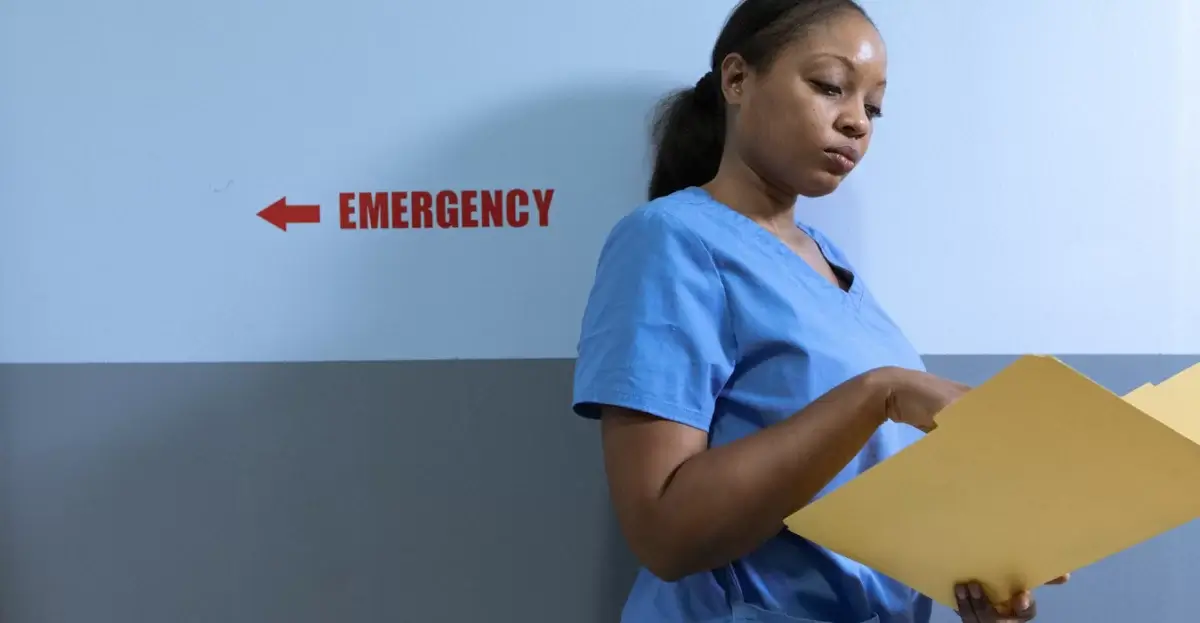Registered nurses, no matter their chosen specialty are critically needed and highly valued.
This week happens to be National Emergency Nurse week and we thought it important to create some content highlighting this noble profession. It’s clear that top nurses lead with their caring personality and ability to keep calm in any situation. What’s less clear sometimes as a RN starts off in their career is the nursing work environment that will be the best fit for their skills and characteristics. Not all specialty nursing positions are the same. If you think you’ve narrowed your options down to working in an emergency room (ER) nurses, use this updated list to understand the role and expectations.
What does an ER nurse do?
ER nurses treat patients coming through hospital emergency departments for a variety of reasons – trauma, injury, and acute-onset symptoms. They treat patients of all ages and backgrounds. Most patients are experiencing emergency, life-threatening situations, and ER nurses must be quick to recognize those acute problems and be able to resolve or stabilize them immediately upon arrival. The job is fast-paced, full of adrenaline rushes, and completely unpredictable shift-to-shift.
This job is all about focused assessments, stabilizing the patients, and sending them where they need to be. Also, effective communication with providers while working elbow-to-elbow with them is paramount. Quickly identifying an issue and rapidly implementing a plan of care requires effective teamwork.
Top ER Nurse Skills
ER Nurses possess a strong mix of hard and soft skills in order for them to excel. It’s also important to highlight that to be a nurse, is to embrace a lifestyle. This career is not one that you can simply log off from. When you are a healthcare professional, you are almost always “on” even when the scrubs are off.
- Crisis management – The ER nurse must be able to make an immediate assessment of critical conditions such as a heart attack, gunshot wound, or ruptured aneurysm. They must be able to move quickly but still take time to reassure the frightened patient.
- Detail Oriented – A nurse’s actions on the job can have far-reaching after effects. Strict attention to detail must be second nature for a nurse.
- Flexibility – This is a key skill for an ER nurse. Patients’ needs can change quickly and the nurse must be able to respond immediately to those changes.
- Clinical skills – Top of the “hard skills” list is excellent clinical skills. They must perform their duties swiftly and efficiently to prevent delays in care to protect their patients and practice. The ER nurse should have the technical skills to perform treatments and therapies, manage complex machinery, and immediately recognize important changes in a patient’s condition.
- Patient assessment – Another vitally important skill for ER nurses. ER nurses must know how to interpret lab and other diagnostic information in relation to the patient’s condition and the plan of care.
- Interpersonal skills – The emergency room is a place where people who are frightened or in pain need comfort and support. ER nurses need excellent interpersonal skills to calm patients, deal with an agitated family member, or communicate with people effectively (sometimes without words).
- Stamina – Physical stamina is a useful quality for an ER nurse. But often times it is the mental stamina that we rely on to get through long shifts.
To sum up this list, the ideal ER nurse is adaptable, calm, and collected during emergencies, quick-acting, big-picture thinkers, adrenaline seekers, and love organized chaos.
ER Nurse Responsibilities
ER Nurses have a long list of responsibilities. As varied as this job is, these are the main responsibilities:
- Triage – assess and decide which patients will be seen first and in which order
- Take vital signs and complete focused assessments
- Administer medications
- Emergent life-saving measures like assisting with rapid sequence intubations, cardiopulmonary resuscitation, and more
- Provide medical treatment
- Charting – take a full history of patients so the physicians can diagnose them easier and accurately.
- Educate patients and family members – help them understand the importance of the doctor’s orders and repercussions of not following them.
- Communicate with providers, colleagues, and patients
- Transfer – getting patients safely admitted to a nursing unit for further care and evaluation
If this is a specialty you are considering switching into for a long-term or travel nurse contract, take some to understand the role thoroughly. Then, sign up with SkillGigs and seek our top employers looking to add to their ER hospital staff.





